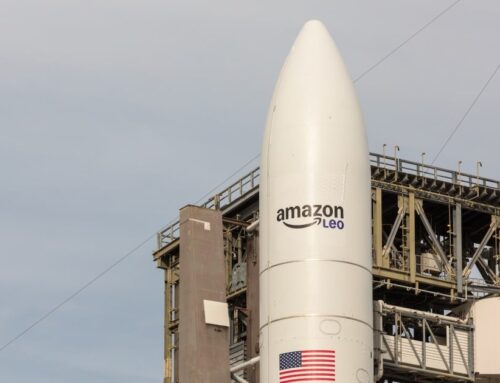Colorado appoints its first community coordinators for environmental justice
May 14, 2025
This article originated from Sol del Valle and has been translated for English readers.
Editor’s note: This interview has been edited for length and clarity.
The Colorado Energy and Carbon Management Commission (ECMC) has set a precedent by appointing its first community coordinators for environmental justice: Steven Arauza, from Rifle, and Yesica Chavez, from Denver. These new positions were established under a recently enacted state law and regulations adopted in 2024, which require government agencies and companies in the energy sector to expand opportunities for community participation in the development of rules and processes related to energy development.
The purpose of these regulations is to consider so-called “cumulative impacts,” meaning the combined — past and present — effects that oil and gas activities may have on human health and the environment. Special emphasis is placed on disproportionately impacted communities which, in many cases, face higher environmental risks.
Sol del Valle spoke with Steven Arauza to learn more about his new role and how communities can participate in these processes. Below are some highlights from the interview.
Can you tell us a little about your work?
Steven Arauza: Of course. I’m a geologist with over 13 years of experience in regulating the oil and gas industry, with a strong focus on environmental protection and justice. My work also includes community organizing in the Colorado mountains region and more than three years of service on the Environmental Justice Advisory Board of the Colorado Department of Public Health & Environment, where I’ve worked to address the disproportionate impacts that vulnerable communities face in terms of health and the environment.
What does “environmental justice” mean to you in the context of Colorado’s energy regulations?
Arauza: Environmental justice in Colorado means making sure that all communities — especially those that have historically been disproportionately affected — have a voice in decisions that impact their health and surroundings. Yesica Chavez and I will organize and attend community meetings in areas where oil and gas development may have a direct impact. In those locations, if a development plan is near a community, the operator must organize meetings so that residents can voice their concerns.
What are some of the main environmental concerns faced by disproportionately affected communities?
Arauza: For a long time, low-income communities, communities of color and people living in mobile homes have faced more pollution and health issues due to energy projects. With the new rules, that’s beginning to change. Now, community voices are not only being heard, they’re finally being integrated into the decision-making process.
Can you give us an example of how cumulative impacts might affect a community in our region?
Arauza: A good example is the Bella Romero Academy, located in Greeley, near oil and gas extraction facilities. Neighbors have voiced concerns about emissions from these operations and have requested more research into the possible health impacts, especially for students and their families. A similar case is happening in Commerce City, and we must not forget what is happening in Parachute, where concerns focus on air and water pollution.
What kind of support or resources are being provided to help community members engage with the ECMC process?
Arauza: Our team is working on a community outreach plan that will guide our future efforts and coordinate with state agencies to help communities better understand regulatory roles. The goal is to build and maintain trust within communities in Colorado, ensuring they can fully participate in the process.
How can the community get involved in this process?
Arauza: The community has several ways to express their concerns effectively. They can do so through the environmental justice commissioner — in this case, I am one of those channels to amplify their voices. In addition, the resources available in the state, such as participation platforms and community hearings, are a great opportunity for community concerns to be heard and considered in regulatory processes. Active participation in these spaces helps highlight issues and contributes to the creation of more inclusive and fair policies.
Is there anything else you would like to remind the community?
Arauza: One of the challenges we’ve faced in the state is the lack of information in languages other than English, which creates a language barrier and prevents many communities from being heard, fully participating and accessing important resources. We are working to provide adequate translation and interpretation services so these underserved communities can get involved in the processes that affect their lives.
Residents of communities experiencing significant environmental impacts can contact Steven Arauza and Yesica Chavez through the ECMC website or by email: steven.arauza@state.co.us and yesica.chavez@state.co.us
The coordinators are available to receive concerns related to air quality, noise or energy development near residential areas, and to support community participation in decision-making processes.
Search
RECENT PRESS RELEASES
Related Post




